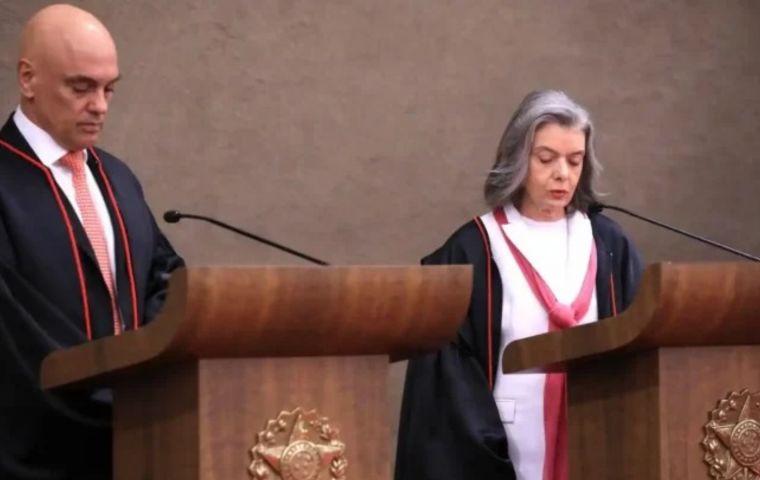MercoPress. South Atlantic News Agency
Brasil: Cármen Lúcia to replace Alexandre De Moraes as TSE Chief Justice
 Lúcia has already been the first woman ever to chair the TSE
Lúcia has already been the first woman ever to chair the TSE Cármen Lúcia has been slated to succeed Alexandre De Moraes as Chief Justice of Brazil's Superior Electoral Court (TSE) starting June 3. It will be Lúcia's second term in the post. In 2012 she became the first woman ever to hold that office. Her term will span through 2026. The TSE is made up of at least seven justices, three from the Supreme Federal Court (STF), two from the Superior Court of Justice (STJ), and two lawyers.
Also Tuesday Kassio Nunes Marques was chosen as TSE Deputy Vice-President, the position currently held by Lúcia since May last year when she filled the vacancy left by Ricardo Lewandowski.
Lúcia pledged to honor the Constitution and ensure that the Electoral Justice system acts in favor of democracy. Her first job will be to oversee the Oct. 6 municipal elections when over 154 million voters will choose their new mayors and city councilors.
After the results of the secret voting were announced, De Moraes said that it would be a “joy and honor” to pass the baton to an “exemplary magistrate, brilliant jurist and incomparable teacher” under whom “the Electoral Justice will be in good hands.”
Born in Montes Claros, in the State of Minas Gerais, Lúcia has a law degree from the local Pontifical Catholic University (PUC-MG) and a master's degree in Constitutional Law from the Federal University of Minas Gerais (UFMG). She has also taught Constitutional Law at PUC-MG, in addition to serving as a lawyer and as a prosecutor for Minas Gerais. She was appointed to the Federal Supreme Court (STF) in 2006 by President Luiz Inácio Lula da Silva (PT) in lieu of Nelson Jobim.
De Moraes' term at the helm of the TSE dating back to August 2022 was marked by the 2022 presidential elections, during which he campaigned against fake news, a subject on which Lúcia has also been working.
Lúcia was the rapporteur in the TSE ruling establishing parameters for the use of artificial intelligence in electoral campaigns, requiring the identification of this type of content and prohibiting the dissemination of false content. She has also held meetings with representatives of major technology companies to discuss measures to strengthen the fight against fake news.
In 2001, Lúcia was appointed Attorney General of Minas Gerais by then Governor Itamar Franco, who had been Brazil's President between 1992 and 1994. Between 2016 and 2018, she was Chief Justice of the STF and of the National Council of Justice (CNJ).




Top Comments
Disclaimer & comment rulesCommenting for this story is now closed.
If you have a Facebook account, become a fan and comment on our Facebook Page!